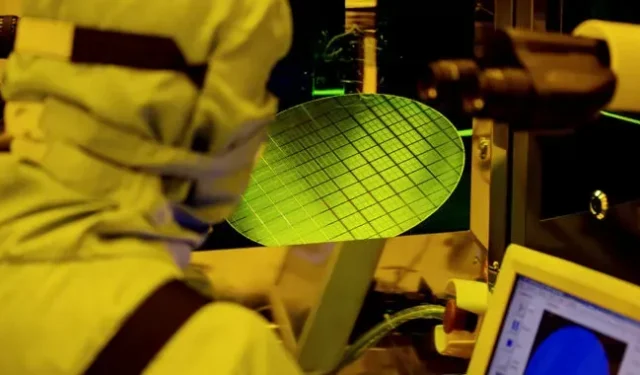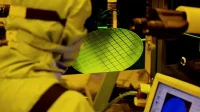China has hit back at tight US export controls on chips by filing a dispute with the World Trade Organization and escalating a technology war between the two countries.
China’s Commerce Department said on Monday its WTO complaint was a legitimate and necessary action to protect its “legitimate rights and interests”after the US Commerce Department imposed sanctions in early October to make it harder for China to purchase or develop advanced semiconductors.
“At the very least, the point is that China is resisting being seen as an unscrupulous player in the world of global trade,” said Ben Kostsheva, U.S.-China trade expert at Hogan Lovells.
The complaint is the first step in the WTO mediation process, in which the case is usually referred to the Appellate Body. But the body has been put on hold due to disagreements among member states, and Kostsheva said China’s complaint is unlikely to “have any legal implications”unless the group resumes its work.
The move comes just weeks after U.S. President Joe Biden and his Chinese counterpart Xi Jinping used their first face-to-face meeting as leaders to signify a shared desire to improve relations between the world’s two largest economies after relations fell to decades minimum.
China’s complaint also comes just days after the historic decision in which the WTO commission backed Beijing against Washington. In a report released Dec. 9, the WTO said the US had no evidence to suggest that the Trump administration’s 2018 tariffs on steel and aluminum from China and elsewhere were necessary to protect their national security.
“The Chinese government knew this was coming and almost certainly expected it to strengthen its position on the export control issue,”a Western trade official said.
The export controls were intended to prevent China from using advanced American technology for military purposes, such as modeling nuclear warheads and manufacturing hypersonic weapons.
These measures prevent US companies from exporting technology to Chinese groups that make high-performance chips for virtually all modern devices, including the latest electric cars, smartphones and artificial intelligence.
A spokesman for the US Trade Representative stated, “As we have already informed the PRC [People’s Republic of China], these targeted actions are related to national security and the WTO is not the appropriate forum to discuss issues related to national security.”
The export control shook the global semiconductor supply chain when it was unveiled, threatening to wipe out decades of investment in China by the world’s biggest technology groups.
Since coming to power in 2012, Xi has placed freeing China from its dependence on foreign chips at the center of his economic agenda. Since the announcement of export controls, Beijing has increased spending on research and development to counter what it called a “blockade”on its tech industry.
Domestic tech giants Alibaba and Tencent have been enlisted, along with state-backed groups such as the Chinese Academy of Sciences, to create semiconductor intellectual property that will empower the country.
Chinese chip manufacturing champions such as Semiconductor Manufacturing International, Yangtze Memory Technology, and Hua Hong Semiconductor have also grown rapidly in recent years. However, the groups are dependent on foreign companies for some of the basic elements of the basic chip design and equipment to manufacture them.
In another sign of the impact of export controls, Lam Research, a California-based chip-making equipment supplier, has begun laying off staff in China, according to two people with direct knowledge of the matter.
Teams providing services to Chinese manufacturing firms have been hardest hit, according to one person familiar with the situation.
The US is also negotiating with Japan and the Netherlands over an export control agreement under which the countries will ban their companies from selling tools to make chips for China’s advanced semiconductors. White House National Security Adviser Jake Sullivan said on Monday that the US was in discussions with its partners on a “broad agreement”on China.


